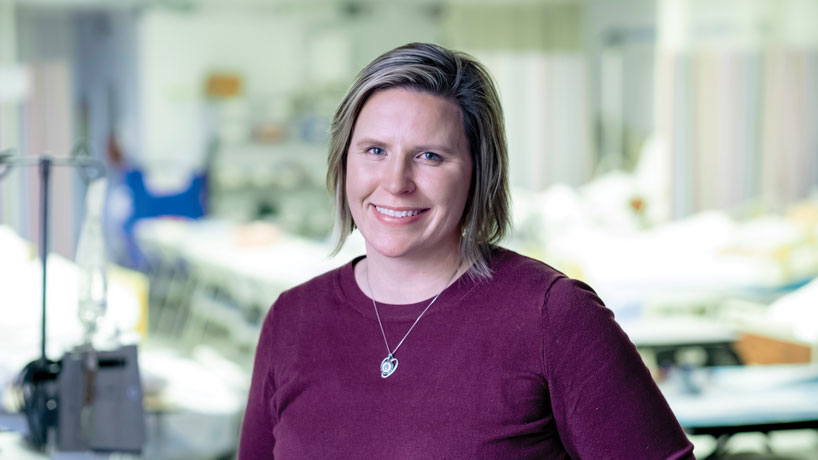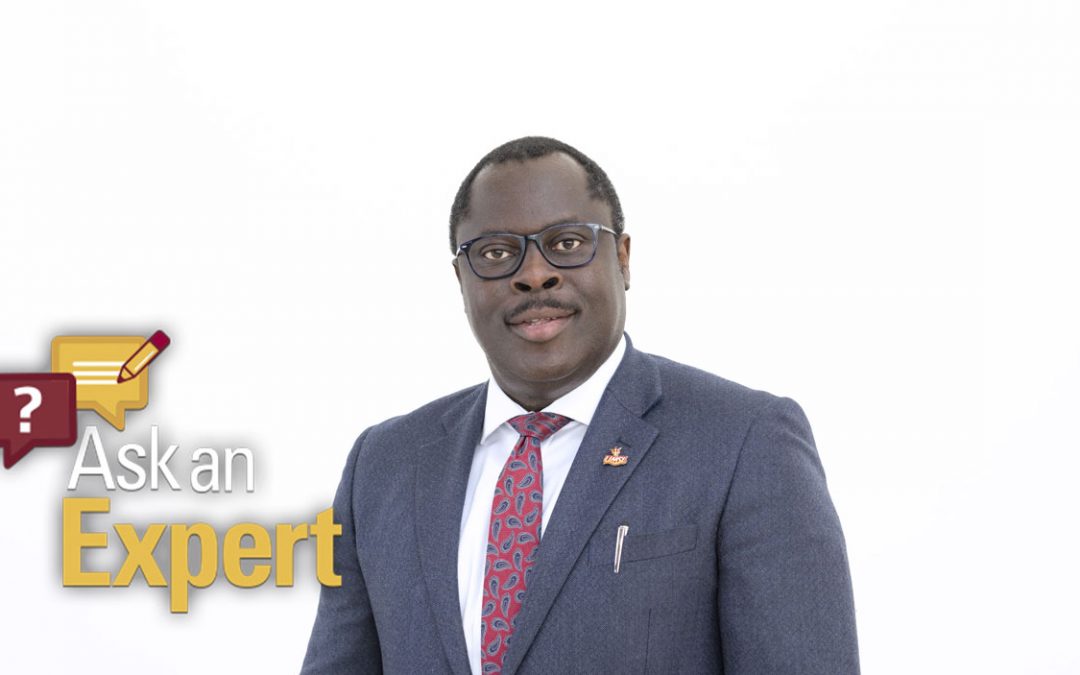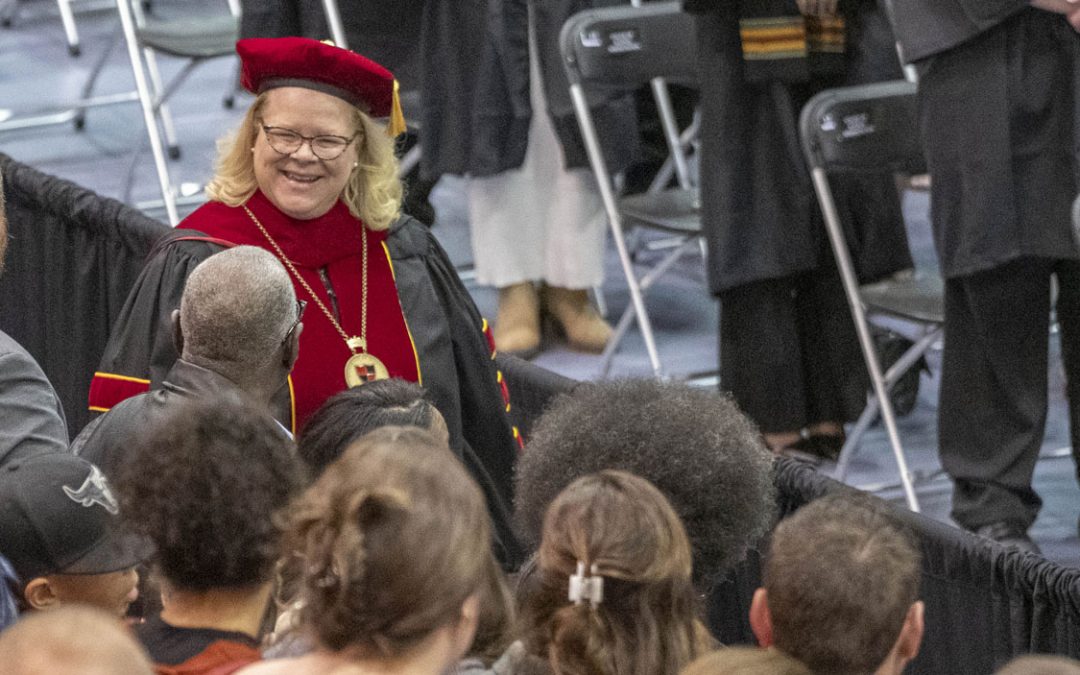
Kim Werner is an associate professor and the associate dean of research in UMSL’s College of Nursing. (Photo by August Jennewein)
In addition to her dual role as associate professor and associate dean of research in the College of Nursing at the University of Missouri–St. Louis, Werner also serves as the principal investigator for Tritons United: Against Gender-Based Violence.
Tell us about your own research interests.
I have multiple research interests, and they all focus on women’s health and mental health. My most recent research work examined the biopsychosocial outcomes of trauma in women survivors of domestic violence, including traumatic brain injury, PTSD and quality of life. I graduated with a psychology degree from Saint Louis University in 2006, and that was in the throes of the beginning of Operation Iraqi Freedom, so I really developed a passion for studying and understanding post- traumatic stress disorder, supporting veterans and learning how I can contribute as a civilian. For my graduate work at UMSL, I looked at psychophysiological alterations associated with post- traumatic stress disorder in women survivors of interpersonal violence, including rape and assault. That really changed the thrust of my career and helped me develop my passion for women and women’s health. When I finished my PhD, I did a postdoc at Washington University in St. Louis to look at substance use and substance outcomes associated with trauma exposure. That’s where I developed my psychiatric epidemiology focus to look at how substance use and substance use disorder, as well as other risky behaviors, can be a predominant factor in life trajectory after trauma during childhood.
How do research and clinical practice dovetail in the College of Nursing?
I have learned a lot about the real-world dynamics of being able to improve patient care very quickly by taking the existing evidence that’s in the literature and actually applying it. That’s the linchpin: getting that research that we spend billions of dollars on as a country every year into actual practice and patient outcomes.
Our DNP and PhD students have years – sometimes decades – of practice, and they are clinical experts in important disease states including oncology, mental health and community health. The synergy of the clinical practice that our students bring, as well as the research expertise and the understanding of research mechanisms and the scientific theory of our faculty, create this perfect petri dish for innovation and novel insight. We’re able to couple faculty expertise and clinical experts together to address real-world problems in real-world time and improve patient care within, say, six months in the hospital settings and institutions where our students are working. That’s really exciting to me, because as a researcher, we often think it takes decades to see any results of what our research projects find to go into practice, and I get to see that on a yearly basis with some of our students.
What’s next for Tritons United?
I rely on the leadership of Project Director Maggie Gross and our Community Coordinated Response Team to drive the future of Tritons United. We’ve been awarded a second round of funding that will carry us through September 2025. One of the thrusts that we’re going to have in the next three years is to support the queer community, including St. Louis Queer+ Support Helpline and LGBTQIA student alliances like PRIZM, as we move forward. We know that the queer community experiences gender-based violence at a much higher rate and we want to make sure that we’re providing programming and support for them specifically. We’re also starting to engage with students from different departments to support the Tritons United project. We have two anthropology students who are taking an elective to support all the programming that we’re doing. We have also had interest from gender studies, psychology and social work, and we’re really open to supporting any interested students. I just love working with students. I love supporting them being able to develop into whatever they want, regardless of what department they’re housed in.
This story was originally published in the spring 2023 issue of UMSL Magazine. If you have a story idea for UMSL Magazine, email magazine@umsl.edu.














